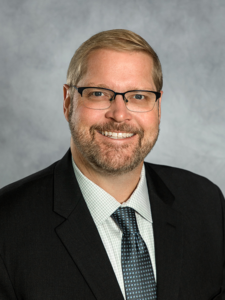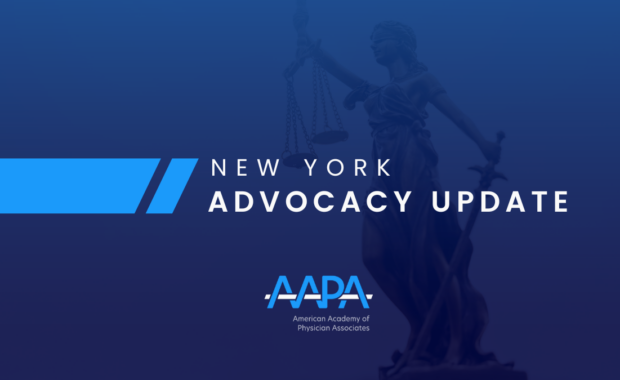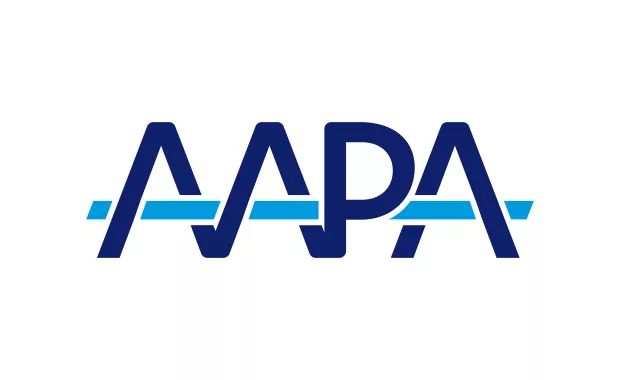PAs in Administration Offer Advice for Expanding Leadership Skills
How to Open the Door for New Opportunities
April 27, 2023
By Alex Morse
An AAPA Huddle Ask Me session called on two experienced PAs to answer questions on developing leadership skills, knowing when to obtain an additional degree, and the advantages and disadvantages of various administration roles.

Todd Pickard, MMSc, PA-C, DFAAPA, currently serving his seventh term on the AAPA Board of Directors and the current Vice President and Speaker of the House, has spent two decades specializing in oncology at The University of Texas MD Anderson Cancer Center in Houston. When Texas approved prescriptive authority for PAs, Pickard volunteered to help design the implementation process for his institution. As a result of these experiences, he was given the opportunity to create and then interview for the first PA administrative position. Among his many degrees, Pickard has acquired a graduate certificate in health care management from Rice University and completed certificate programs in administrative leadership and clinical safety and effectiveness.
Alisha T. DeTroye, MMS, PA-C, DFAAPA, is the Regional Director of Advanced Practice for Atrium Health Wake Forest Baptist. In this role, she provides strategic leadership and vision for the overall APP workforce of approximately 1,000 providers. DeTroye is recognized as an APP leader at the local, state, and national levels, serving in various leadership roles and was the 2021 recipient of the Association of Physician Assistants in Oncology Lifetime Achievement Award. She continues part-time clinical practice in neuro-oncology and is an adjunct Assistant Professor with the Wake Forest Department of PA Studies.
Developing Leadership Skills
The best way to develop leadership skills is to put in the work. When problems or projects arise, volunteer to handle them. Recalling his own experience, Pickard developed a reputation for getting things done and became a resource to his department and institution. It allowed him to expand his network and open himself up to future opportunities. Leadership is not a degree you can earn: It comes from hard work, communication, and finding solutions, Pickard says.

DeTroye stresses the importance of finding opportunities to lead regardless of the setting. “Whenever barriers exist to starting a PA (or APP) leadership role, find a physician or administrative champion who might open doors otherwise closed to you. My collaboration with our regional CMO ultimately led to doors opening that didn’t previously exist.” She also encourages PAs to attend AAPA’s Executive Leadership Conference to network and learn from healthcare leaders.
Knowing When to Further Your Education
If you are considering additional education, make sure you are choosing the right program for the right reason. There are many degrees and certificate programs, but before choosing one, you should consider what you need to learn. Pickard suggests thinking about where your passion lies before finding the education that supports that goal.
“Just like medicine, administration is not one thing. You can focus on people management, finance, operations, supply chain, compliance, policy, legal, IT, and many other areas,” Pickard says, and adds that there is no wrong choice. Every PA has something unique to offer and it’s up to the individual to discover what that is.
Opportunities in Part-time Roles vs. Full-time
The COVID-19 pandemic has forced several industries, especially healthcare, to stop thinking in the traditional mindset of nine-hour working days. DeTroye encourages teams to focus on innovative retention strategies rather than setting limitations based on how things have been done in the past.
“In this discussion, it is important to think about the access needs of your clinical practice, maybe an individual can work part-time but they are willing to work early or late hours to meet patient needs,” DeTroye says. “With a patient and provider-centered mindset we are likely to succeed!”
PA Administration Resources
The PAs in Administration (PAAMS) Huddle group is an excellent resource to meet and learn from healthcare leaders. It is an opportunity to ask questions and receive advice from clinicians with first-hand experience.
DeTroye and Pickard also recommend several networking events. The Leadership and Advocacy Summit, for example, is a fantastic opportunity for PAs to network, meet old friends and new leaders, exchange ideas, and enjoy the Washington, D.C. area. It allows attendees to better understand the current issues facing PAs and how they can make a positive change.
The Executive Leadership Conference will redefine how you approach leadership at your organization. The unique blend of sessions challenges you to refine your healthcare leadership competencies, lead through crisis, enhance your leaderships skills, improve PA and NP revenue generation for your organization, and much more. Finally, explore CME opportunities at AAPA 2023 and create new connections that will fire up your creativity and evolve your practice.
Read the full Huddle thread online and find out more about this specialty by using AAPA’s Areas of Practice Guide.
Alex Morse is AAPA’s Communications Associate. She can be reached at [email protected].
You May Also Like
How to Overcome Struggles in Family Medicine
PA Ranks as #2 Best Healthcare Job by U.S. News & World Report
A Day in the Life of a Rheumatology PA
Thank you for reading AAPA’s News Central
You have 2 articles left this month. Create a free account to read more stories, or become a member for more access to exclusive benefits! Already have an account? Log in.



